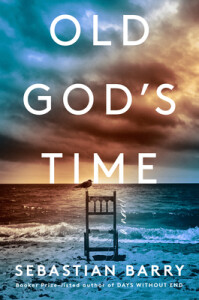
Tom Kettle is a retired Irish detective, living out by the coast, in a lean-to attached to an old castle. In retirement, he does nothing or, as he says, stays “stationary, happy and useless.” For nine months he has treasured his empty days, when they are interrupted by two junior detectives appearing at his door.
They’ve come to ask for his help with an old case, one Tom worked on: the murder of a priest who had been accused of abusing children. But this is no police procedural, with a brilliant sleuth and a puzzle for the reader to figure out.
There is a puzzle for sure, but much of it has to do with how much Tom can rely on his own thoughts. His mind moves plausibly between day and dream, present and past, until the reader is left wondering whether a visitor is real or a ghost, if things happened the way Tom described them yesterday to the way he describes them today.
He’s buried under the weight of the past. The abuse he endured in the orphanage, witnessing the sexual assault of boys “with the light in their eyes put out” by the priests was still not as awful as his wife’s suffering in the convent. Later, he thought they’d outrun the priests and the horrors, him doing well in the Garda, June raising their two smart and wonderful children. But those cautiously happy years have been erased by the repeated traumas of his police work and by his unbearable losses.
His memory slips around like a Rubik’s cube, realigning sometimes in a new pattern or falling into chaos. He cannot trust his own mind, his own senses. He becomes friends with another tenant of the castle, a cellist—or was that a dream? Tom often hears the cellist practicing Bruch’s Opus 47, an adagio based on the Kol Nidre, a Hebrew and Aramaic declaration that is associated with the “day of atonement” in the Jewish calendar.
Just as Tom navigates his slippery sense of reality, the reader is carried from a scene of pure realism into stream of consciousness into dreams and memories. It’s a brilliantly written book. I had to pay attention, and sometimes be patient, but I never lost the thread of the story. I wondered at some of the detours, but in the end could see they were all necessary.
This is a story about trauma, how it is carried in the body and the mind, how it endures into the next generation. Tom Kettle has his code. He struggles to hold onto his integrity even as he tries to sort out in his own mind what is true and what is not.
In my book club we often talk about how some novels require an extra effort from the reader, a bit more thought, a little more patience. I won’t deny that Barry’s novel is difficult to read, both because of its slippery narrative and the terrible descriptions of abuse, but it is well worth the effort. It’s unforgettable.
Have you read a novel by Sebastian Barry? What did you think about it?